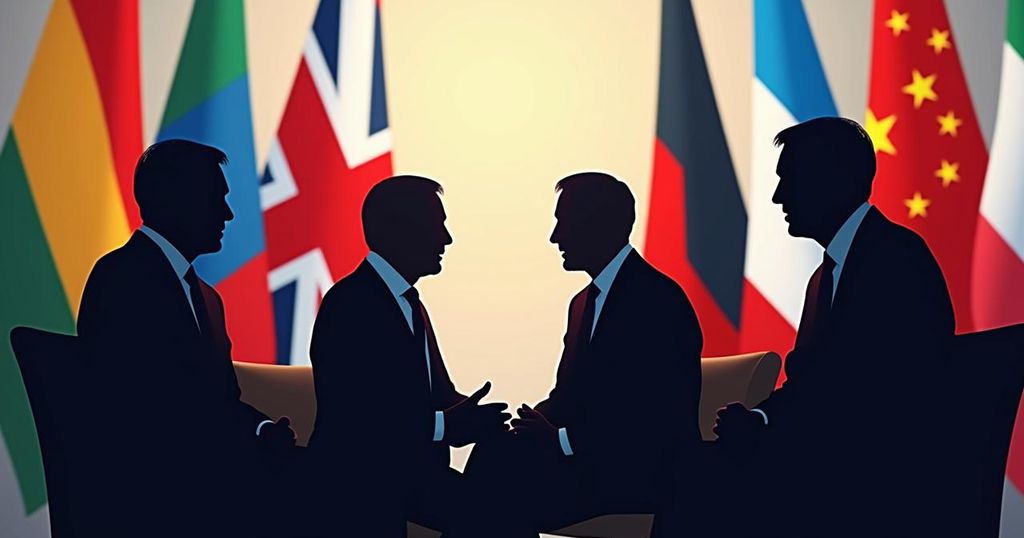Biden and Netanyahu Discuss Iran Amid Rising Tensions in the Middle East

President Biden and Prime Minister Netanyahu recently spoke for the first time in seven weeks, discussing Israel’s impending response to Iran following a missile attack. The Israel-Hamas conflict and ongoing hostilities with Hezbollah are influencing the geopolitical climate, with grave humanitarian impacts in Gaza. Despite strained relations, the U.S. continues to support Israel.
On Wednesday, President Joe Biden and Israeli Prime Minister Benjamin Netanyahu engaged in a phone conversation characterized as “direct” and “productive” by the White House. This marked their first dialogue in seven weeks amidst escalating tensions in the region, particularly concerning Iran’s recent missile strike on Israel on October 1. In light of this, Israeli Defense Minister Yoav Gallant indicated that Israel is preparing for a “powerful, precise, and above all — surprising” response to Iran’s actions. The ongoing conflict between Israel and Hamas continues to unfold as significant events have shaped recent hostilities. Since Hamas’ groundbreaking cross-border assault on Israel on October 7, which resulted in considerable loss of life and numerous civilian hostages, Israel has retaliated with a ground invasion, marking a critical escalation in military operations that has led to unprecedented displacements since the nation’s founding in 1948. Furthermore, the plight of Gaza remains dire, with reports indicating that half of its population is experiencing “famine-like conditions” due to prolonged Israeli attacks, which have resulted in tens of thousands of casualties. Tensions have also intensified along the Israel-Lebanon border, where clashes with Hezbollah, a militant group supported by Iran, have provoked violent exchanges, including an Israeli invasion of southern Lebanon that has caused substantial civilian casualties. Despite existing frictions between Netanyahu’s administration and certain U.S. officials, it is noteworthy that the United States continues to provide Israel with vital military support, including weapons and financial aid, while strategically navigating the diplomatic waters at the United Nations. This series of events underscores the deep-rooted complexities of the Israeli-Palestinian conflict, which has historical origins that trace back well before the establishment of the Israeli state in 1948. The continuous cycle of violence in the region warrants close examination and illustrates the urgent need for diplomatic interventions to foster long-term peace.
The Israeli-Palestinian conflict has a profound historical context that has shaped contemporary relations and conflicts in the Middle East. The dynamics of this region have been profoundly influenced by recent hostilities, including attacks by Hamas against Israel and subsequent military actions taken by Israel in Gaza and Lebanon. The ramifications of these conflicts have resulted in significant humanitarian crises, spurring international concern and involvement. The relationship between the United States and Israel remains a pivotal component, affecting both military strategies and diplomatic measures in the region.
In conclusion, the recent communication between President Biden and Prime Minister Netanyahu highlights the ongoing tensions between Israel and Iran amidst a backdrop of renewed violence in the region. The complexity and depth of the Israeli-Palestinian and Israeli-Hezbollah conflicts are evident, requiring urgent international attention to address humanitarian crises and seek pathways toward resolution. Continued U.S. support for Israel suggests a sustained commitment to its ally, albeit under the scrutiny of a changing geopolitical landscape.
Original Source: www.washingtonpost.com





